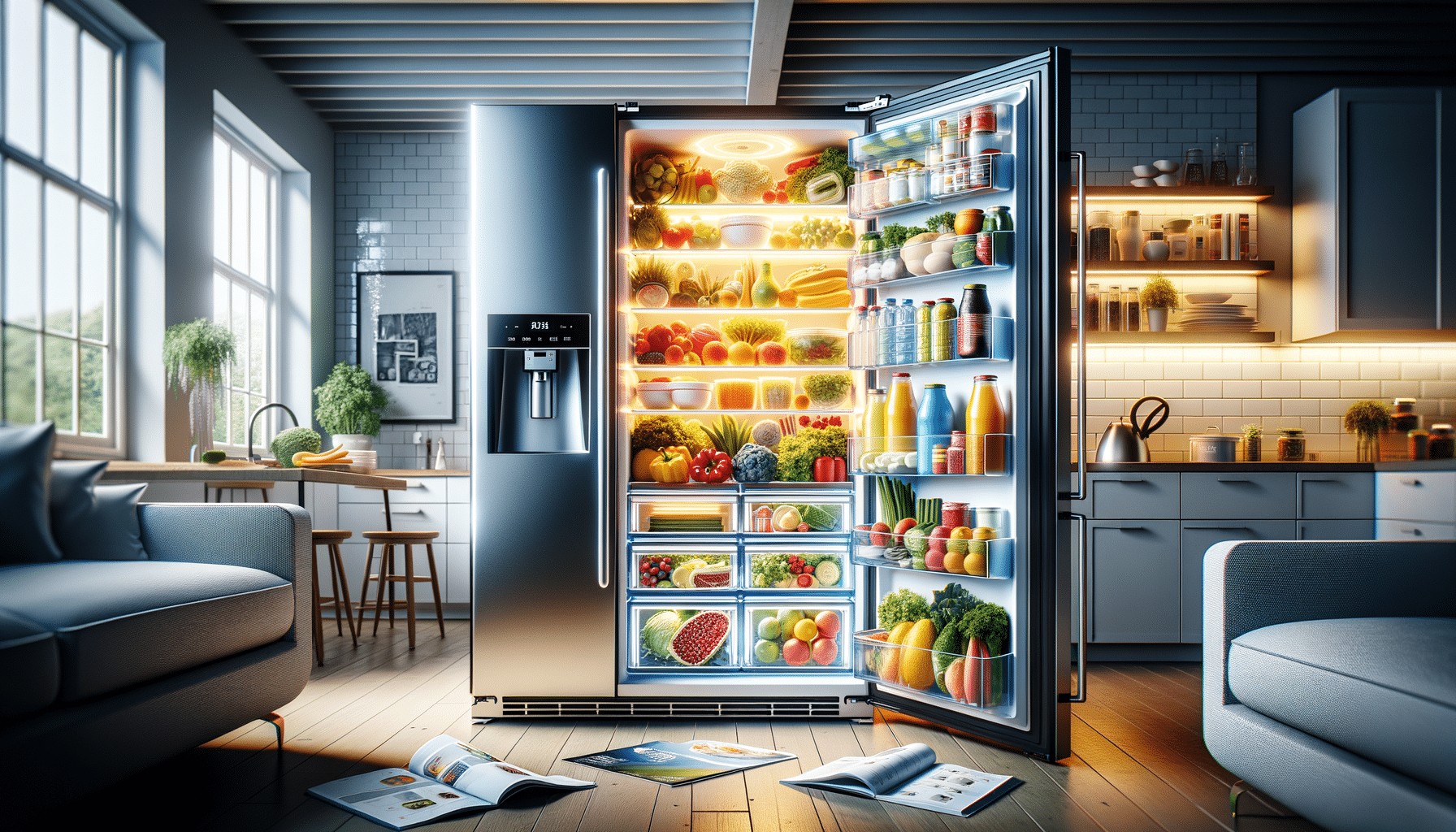Understanding Refrigerators: A Comprehensive Guide
Explore the essential role of refrigerators in modern households, their technology, energy efficiency, and maintenance tips.

Introduction to Refrigerators
Refrigerators have become an indispensable part of modern households, serving as the cornerstone of food preservation and storage. As technology has advanced, these appliances have evolved from basic iceboxes to sophisticated machines that incorporate cutting-edge features. Their importance in maintaining food safety and reducing waste cannot be overstated, making them a vital component of any kitchen. This article delves into the various aspects of refrigerators, including their technology, energy efficiency, different types, and maintenance tips, providing a comprehensive understanding of these essential appliances.
The Technology Behind Refrigerators
Refrigerators operate on the principle of heat extraction, utilizing a cycle of evaporation and condensation to maintain low temperatures. At the heart of this process is the refrigerant, a fluid that circulates through the system, absorbing heat from the interior and releasing it outside. The compressor, condenser, and evaporator are key components that facilitate this cycle, each playing a critical role in the cooling process.
Modern refrigerators have embraced technological advancements, integrating smart features that enhance user convenience and energy efficiency. For instance, some models come equipped with sensors that monitor temperature and humidity levels, automatically adjusting settings to optimize performance. Furthermore, Wi-Fi connectivity allows users to control their refrigerators remotely, providing real-time updates and alerts.
Energy Efficiency in Refrigerators
With growing awareness of environmental concerns, energy efficiency has become a significant consideration for refrigerator manufacturers and consumers alike. Energy-efficient models are designed to minimize electricity consumption while maintaining optimal performance, thereby reducing both environmental impact and utility bills.
Several factors contribute to a refrigerator’s energy efficiency, including the type of refrigerant used, insulation quality, and compressor technology. Energy Star ratings serve as a reliable indicator of an appliance’s efficiency, guiding consumers in making informed choices. Additionally, features such as inverter compressors and LED lighting further enhance energy savings by adjusting power usage according to demand.
Types of Refrigerators
The market offers a diverse range of refrigerator types, each catering to specific needs and preferences. Common categories include top-freezer, bottom-freezer, side-by-side, and French door models, each with distinct advantages.
- Top-Freezer: These traditional models are known for their affordability and space efficiency, making them suitable for smaller kitchens.
- Bottom-Freezer: With the freezer compartment located at the bottom, these refrigerators offer easier access to fresh food items stored at eye level.
- Side-by-Side: Featuring vertical compartments for both the refrigerator and freezer, these models provide ample storage space and are ideal for narrow kitchens.
- French Door: Combining the benefits of bottom-freezer and side-by-side designs, French door refrigerators offer spacious interiors and a sleek appearance.
Each type presents unique features and benefits, allowing consumers to choose based on their specific kitchen layout and storage needs.
Maintenance Tips for Refrigerators
Regular maintenance is crucial to ensure the longevity and efficiency of refrigerators. Simple practices can prevent common issues and enhance performance. Here are some tips:
- Clean Coils: Dust and debris can accumulate on the condenser coils, reducing efficiency. Cleaning them periodically helps maintain optimal performance.
- Check Seals: Ensure door seals are airtight to prevent cold air from escaping, which can lead to increased energy consumption.
- Temperature Settings: Set the refrigerator temperature to around 37°F (3°C) and the freezer to 0°F (-18°C) for optimal food preservation.
- Organize Contents: Avoid overloading the refrigerator, as proper air circulation is essential for efficient cooling.
By following these maintenance tips, users can extend the lifespan of their refrigerators and ensure they operate at peak efficiency.
Conclusion
Refrigerators are a fundamental element of modern life, combining technology and practicality to enhance food preservation and safety. Understanding the various aspects of these appliances, from their technological underpinnings to energy efficiency and maintenance, empowers consumers to make informed decisions and optimize their use. As we continue to embrace smart technologies and eco-friendly practices, the future of refrigeration promises even greater advancements, contributing to a more sustainable and convenient lifestyle.